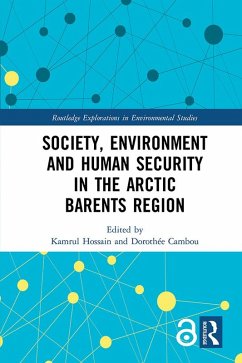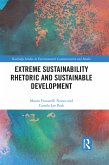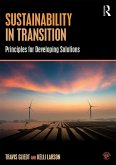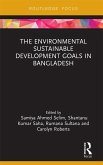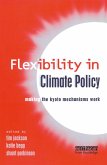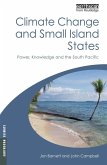Society, Environment and Human Security in the Arctic Barents Region (eBook, PDF)
Redaktion: Hossain, Kamrul; Cambou, Dorothée
0,00 €
0,00 €
inkl. MwSt.
Sofort per Download lieferbar

0 °P sammeln
0,00 €
Als Download kaufen

0,00 €
inkl. MwSt.
Sofort per Download lieferbar

0 °P sammeln
Jetzt verschenken
Alle Infos zum eBook verschenken
0,00 €
inkl. MwSt.
Sofort per Download lieferbar
Alle Infos zum eBook verschenken

0 °P sammeln
Society, Environment and Human Security in the Arctic Barents Region (eBook, PDF)
Redaktion: Hossain, Kamrul; Cambou, Dorothée
- Format: PDF
- Merkliste
- Auf die Merkliste
- Bewerten Bewerten
- Teilen
- Produkt teilen
- Produkterinnerung
- Produkterinnerung

Bitte loggen Sie sich zunächst in Ihr Kundenkonto ein oder registrieren Sie sich bei
bücher.de, um das eBook-Abo tolino select nutzen zu können.
Hier können Sie sich einloggen
Hier können Sie sich einloggen
Sie sind bereits eingeloggt. Klicken Sie auf 2. tolino select Abo, um fortzufahren.

Bitte loggen Sie sich zunächst in Ihr Kundenkonto ein oder registrieren Sie sich bei bücher.de, um das eBook-Abo tolino select nutzen zu können.
This book analyses the formation, and promotion, of societal security within the context of Arctic-Barents region.
- Geräte: PC
- ohne Kopierschutz
- eBook Hilfe
- Größe: 2.92MB
Andere Kunden interessierten sich auch für
![Society, Environment and Human Security in the Arctic Barents Region (eBook, ePUB) Society, Environment and Human Security in the Arctic Barents Region (eBook, ePUB)]() Society, Environment and Human Security in the Arctic Barents Region (eBook, ePUB)0,00 €
Society, Environment and Human Security in the Arctic Barents Region (eBook, ePUB)0,00 €![Extreme Sustainability Rhetoric and Sustainable Development (eBook, PDF) Extreme Sustainability Rhetoric and Sustainable Development (eBook, PDF)]() Mauro Fracarolli NunesExtreme Sustainability Rhetoric and Sustainable Development (eBook, PDF)42,95 €
Mauro Fracarolli NunesExtreme Sustainability Rhetoric and Sustainable Development (eBook, PDF)42,95 €![Sustainability in Transition (eBook, PDF) Sustainability in Transition (eBook, PDF)]() Travis GliedtSustainability in Transition (eBook, PDF)42,95 €
Travis GliedtSustainability in Transition (eBook, PDF)42,95 €![The Environmental Sustainable Development Goals in Bangladesh (eBook, PDF) The Environmental Sustainable Development Goals in Bangladesh (eBook, PDF)]() The Environmental Sustainable Development Goals in Bangladesh (eBook, PDF)22,95 €
The Environmental Sustainable Development Goals in Bangladesh (eBook, PDF)22,95 €![Flexibility in Global Climate Policy (eBook, PDF) Flexibility in Global Climate Policy (eBook, PDF)]() Tim JacksonFlexibility in Global Climate Policy (eBook, PDF)30,95 €
Tim JacksonFlexibility in Global Climate Policy (eBook, PDF)30,95 €![Climate Change and Small Island States (eBook, PDF) Climate Change and Small Island States (eBook, PDF)]() Jon BarnettClimate Change and Small Island States (eBook, PDF)51,95 €
Jon BarnettClimate Change and Small Island States (eBook, PDF)51,95 €![Low Carbon Politics (eBook, PDF) Low Carbon Politics (eBook, PDF)]() David TokeLow Carbon Politics (eBook, PDF)45,95 €
David TokeLow Carbon Politics (eBook, PDF)45,95 €-
-
-
This book analyses the formation, and promotion, of societal security within the context of Arctic-Barents region.
Dieser Download kann aus rechtlichen Gründen nur mit Rechnungsadresse in A, B, BG, CY, CZ, D, DK, EW, E, FIN, F, GR, HR, H, IRL, I, LT, L, LR, M, NL, PL, P, R, S, SLO, SK ausgeliefert werden.
Produktdetails
- Produktdetails
- Verlag: Taylor & Francis eBooks
- Seitenzahl: 238
- Erscheinungstermin: 20. Mai 2018
- Englisch
- ISBN-13: 9781351171236
- Artikelnr.: 56831545
- Verlag: Taylor & Francis eBooks
- Seitenzahl: 238
- Erscheinungstermin: 20. Mai 2018
- Englisch
- ISBN-13: 9781351171236
- Artikelnr.: 56831545
- Herstellerkennzeichnung Die Herstellerinformationen sind derzeit nicht verfügbar.
Kamrul Hossain is a Research Professor and Director of the Northern Institute for Environmental and Minority Law, University of Lapland. Dorothée Cambou is a post-doctoral researcher at the University of Helsinki.
Preface
General introduction and the structure of the book
KAMRUL HOSSAIN AND DOROTHÉE CAMBOU
PART I
Theory and context
1.1 The question of societal security in the Arctic
KAMRUL HOSSAIN
1.2 The Barents Region, a society with shared security concerns in the
Arctic
DOROTHÉE CAMBOU AND LASSI HENINEN
PART II
Assessment
2.1 Environmental security in the Barents Region
SARAH MACKIE
2.2 Economic security in the Barents Region
ANNA PETRÉTEI AND DOROTHÉE CAMBOU
2.3 Health security in the Barents Region
SUSANNA PÄÄKKÖLÄ AND DOROTHÉE CAMBOU
2.4 Food security in the Barents Region
SHAUN CORMIER AND DELE RAHEEM
2.5 Water security in the Barents Region
ANTONIA SOHNS
2.6 Energy security in the Barents Region: A focus on societal perspectives
HANNA LEMPINEN AND DOROTHÉE CAMBOU
2.7 Personal security in the Barents Region
TAHNEE PRIOR AND PATRICK CIASCHI
2.8 Community security of indigenous peoples in the Barents Region
GIUSEPPE AMATULLI AND JOËLLE KLEIN
2.9 Political security in the Barents Region
DOROTHÉE CAMBOU
2.10 Digital security in the Barents Region
MIRVA SALMINEN
Conclusion
KAMRUL HOSSAIN AND DOROTHÉE CAMBOU
General introduction and the structure of the book
KAMRUL HOSSAIN AND DOROTHÉE CAMBOU
PART I
Theory and context
1.1 The question of societal security in the Arctic
KAMRUL HOSSAIN
1.2 The Barents Region, a society with shared security concerns in the
Arctic
DOROTHÉE CAMBOU AND LASSI HENINEN
PART II
Assessment
2.1 Environmental security in the Barents Region
SARAH MACKIE
2.2 Economic security in the Barents Region
ANNA PETRÉTEI AND DOROTHÉE CAMBOU
2.3 Health security in the Barents Region
SUSANNA PÄÄKKÖLÄ AND DOROTHÉE CAMBOU
2.4 Food security in the Barents Region
SHAUN CORMIER AND DELE RAHEEM
2.5 Water security in the Barents Region
ANTONIA SOHNS
2.6 Energy security in the Barents Region: A focus on societal perspectives
HANNA LEMPINEN AND DOROTHÉE CAMBOU
2.7 Personal security in the Barents Region
TAHNEE PRIOR AND PATRICK CIASCHI
2.8 Community security of indigenous peoples in the Barents Region
GIUSEPPE AMATULLI AND JOËLLE KLEIN
2.9 Political security in the Barents Region
DOROTHÉE CAMBOU
2.10 Digital security in the Barents Region
MIRVA SALMINEN
Conclusion
KAMRUL HOSSAIN AND DOROTHÉE CAMBOU
Preface
General introduction and the structure of the book
KAMRUL HOSSAIN AND DOROTHÉE CAMBOU
PART I
Theory and context
1.1 The question of societal security in the Arctic
KAMRUL HOSSAIN
1.2 The Barents Region, a society with shared security concerns in the
Arctic
DOROTHÉE CAMBOU AND LASSI HENINEN
PART II
Assessment
2.1 Environmental security in the Barents Region
SARAH MACKIE
2.2 Economic security in the Barents Region
ANNA PETRÉTEI AND DOROTHÉE CAMBOU
2.3 Health security in the Barents Region
SUSANNA PÄÄKKÖLÄ AND DOROTHÉE CAMBOU
2.4 Food security in the Barents Region
SHAUN CORMIER AND DELE RAHEEM
2.5 Water security in the Barents Region
ANTONIA SOHNS
2.6 Energy security in the Barents Region: A focus on societal perspectives
HANNA LEMPINEN AND DOROTHÉE CAMBOU
2.7 Personal security in the Barents Region
TAHNEE PRIOR AND PATRICK CIASCHI
2.8 Community security of indigenous peoples in the Barents Region
GIUSEPPE AMATULLI AND JOËLLE KLEIN
2.9 Political security in the Barents Region
DOROTHÉE CAMBOU
2.10 Digital security in the Barents Region
MIRVA SALMINEN
Conclusion
KAMRUL HOSSAIN AND DOROTHÉE CAMBOU
General introduction and the structure of the book
KAMRUL HOSSAIN AND DOROTHÉE CAMBOU
PART I
Theory and context
1.1 The question of societal security in the Arctic
KAMRUL HOSSAIN
1.2 The Barents Region, a society with shared security concerns in the
Arctic
DOROTHÉE CAMBOU AND LASSI HENINEN
PART II
Assessment
2.1 Environmental security in the Barents Region
SARAH MACKIE
2.2 Economic security in the Barents Region
ANNA PETRÉTEI AND DOROTHÉE CAMBOU
2.3 Health security in the Barents Region
SUSANNA PÄÄKKÖLÄ AND DOROTHÉE CAMBOU
2.4 Food security in the Barents Region
SHAUN CORMIER AND DELE RAHEEM
2.5 Water security in the Barents Region
ANTONIA SOHNS
2.6 Energy security in the Barents Region: A focus on societal perspectives
HANNA LEMPINEN AND DOROTHÉE CAMBOU
2.7 Personal security in the Barents Region
TAHNEE PRIOR AND PATRICK CIASCHI
2.8 Community security of indigenous peoples in the Barents Region
GIUSEPPE AMATULLI AND JOËLLE KLEIN
2.9 Political security in the Barents Region
DOROTHÉE CAMBOU
2.10 Digital security in the Barents Region
MIRVA SALMINEN
Conclusion
KAMRUL HOSSAIN AND DOROTHÉE CAMBOU
